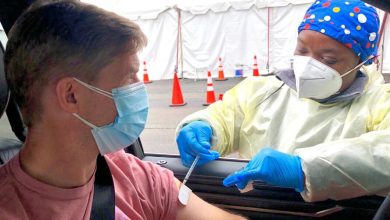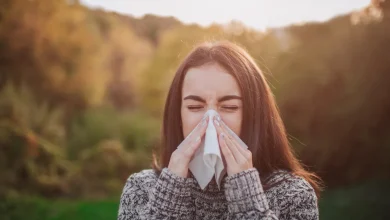West Nile Virus confirmed on Fort Cavazos

Texas’s FORT CAVAZOS – The West Nile Virus has been detected in two mosquito pools, according to the Fort Cavazos Department of Public Health.
The Montague Village Housing Area on West Fort Cavazos and the area around T.J. Mills Boulevard and Casa Blanca Road are where the infected mosquito pool traps were found.
According to officials, this is the first mosquito pool on Fort Cavazos that tested positive for the year.
Environmental Health monitors the main post, West and North Fort Cavazos, and the Belton Lake Outdoor Recreation Area monthly from April through October to guarantee the safety of all residents and employees at Fort Cavazos.
It’s crucial to highlight that there haven’t been any patient cases of West Nile Virus at Fort Cavazos, according to officials, who also claim that mosquito populations have declined recently and don’t need any more pest control treatments.
The Installation Pest Control Management and the Fort Cavazos Department of Public Health will keep an eye on the mosquito population and take appropriate action if necessary.
West Nile Virus: What is it
As per the Centers for Disease Control and Prevention (CDC), the primary mode of transmission of West Nile virus to humans is mosquito bites.
When mosquitoes eat infected birds, they contract the virus. Then, through biting humans and other animals, infected mosquitoes transmit WNV to them.
Most infected individuals don’t feel ill. Fever and other symptoms like headaches, body aches, joint problems, vomiting, diarrhea, or rashes affect about 1 in 5 infected individuals.
A serious condition affecting the central nervous system, such as encephalitis (inflammation of the brain) or meningitis (inflammation of the membranes surrounding the brain and spinal cord), affects about 1 in 150 affected individuals.
People over 60 are more likely to contract a serious illness if they are infected, although severe illness can strike anyone at any age.
Individuals who have undergone kidney disease, diabetes, cancer, hypertension, diabetes, or who have had organ transplants are also more vulnerable.
How to protect yourself from West Nile Virus
The “four D’s” are suggestions made by the Carl R. Darnall Army Medical Center’s Department of Public Health and Environmental Health specialists to assist you and your community stay safe.
Clothes: When going outside, dress in long, loose, light-colored clothing. Even though it’s hot in Texas, a layer of fabric makes it more harder for mosquitoes to bite you. Mosquitoes can bite through flimsy clothing, so think about applying insect repellent to your clothing. You should also make sure to “dress” your home with window screens to keep mosquitoes out.
DEET: Use insect repellents with DEET or other EPA-approved repellents when you’re outside. When applying insect repellent to exposed skin, it is crucial to use products containing DEET or Picaridin. Remember that young infants shouldn’t be exposed to insect repellents.
Drain: Make sure to routinely remove any standing water, such as that which builds up in tires, buckets, empty cans, clogged rain gutters, and saucers beneath potted plants. Since stagnant water is a breeding ground for mosquitoes, doing these steps can help minimize the mosquito population in residential areas. There’s a probability that mosquito larvae will survive if the water is tainted with organic materials (grass, leaves, and animal feces). Larvae devour contaminated stuff as nourishment. Containers holding water should be emptied and cleaned, turned over, covered, or thrown out after a significant downpour.
Dusk to morning: Avoid going outside as much during the hours of dusk and morning when mosquitoes are most active.




